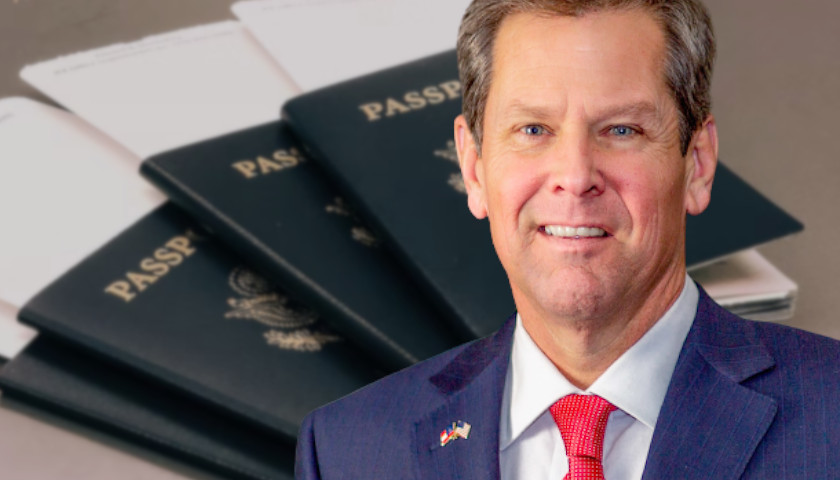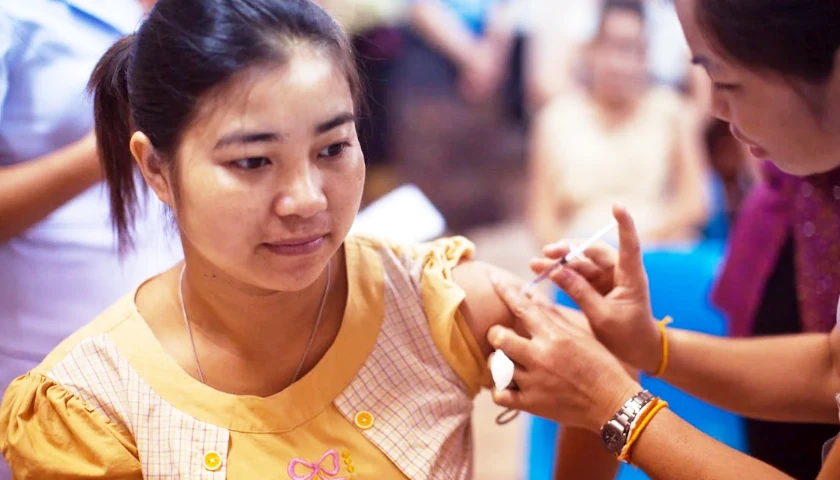As the COVID-19 pandemic winds down, Georgia’s governor Tuesday signed a bill into law banning state and local governments from requiring vaccine passports.
SB 345 bans “proof of any vaccination of any person as a condition of providing any service or access to any facility, issuing any license, permit, or other type of authorization, or performing any duty of such agency,” and says that state and local governments cannot “through any rule, regulation, ordinance, resolution, or other action … require that any person or private entity require proof of vaccination of any person as a condition of providing any service or access to any facility, or as a condition of such person or private entity’s performance of any regular activity by such person or private entity.”
The bill exempts healthcare organizations, who in certain circumstances may be allowed to implement mandatory vaccines.
“We will always stand up for the rights of our people against government overreach,” the governor reportedly said.
COVID-19 vaccine passports, at first called a “conspiracy theory” by far-left media outlets, have been imposed in public and private establishments nationwide.
Perhaps the most high-profile case is that of New York City, which imposed a mandate requiring its residents to show proof of vaccination to enter restaurants, gyms and other private establishments.
Meanwhile, other states like Florida and Texas have already banned such proof of vaccination.
Kemp also tackled another high-profile issue Tuesday.
He signed into law a bill that promotes free speech on college campuses.
HB 1 tackles the issue of “free speech zones,” previously implemented at some of Georgia’s publicly-funded universities. Under the new law, those zones will no longer exist.
Instead, HB 1, called the Forming Open and Robust University Minds Act, designates any outdoor area of any public university as a free speech zone.
“Freedom of expression is one of this great nation’s fundamental liberties,” Kemp said in a press release. “Here in Georgia, we will protect those rights and that which is appropriate for any place of higher learning – the ability to learn of different ideas.”
– – –
Pete D’Abrosca is a reporter at The Georgia Star News and The Star News Network. Email tips to [email protected].





